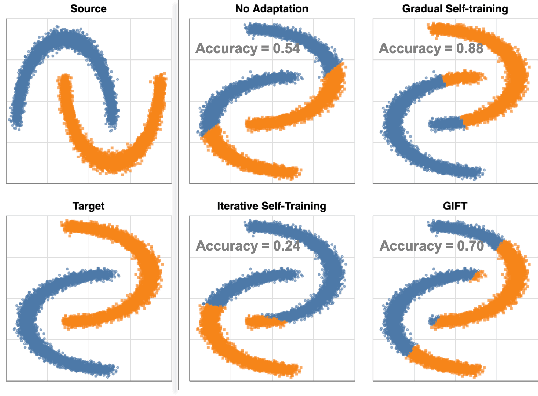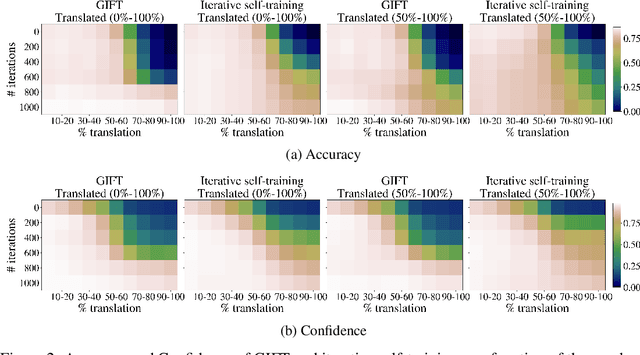Gradual Domain Adaptation in the Wild:When Intermediate Distributions are Absent
Paper and Code
Jun 10, 2021



We focus on the problem of domain adaptation when the goal is shifting the model towards the target distribution, rather than learning domain invariant representations. It has been shown that under the following two assumptions: (a) access to samples from intermediate distributions, and (b) samples being annotated with the amount of change from the source distribution, self-training can be successfully applied on gradually shifted samples to adapt the model toward the target distribution. We hypothesize having (a) is enough to enable iterative self-training to slowly adapt the model to the target distribution, by making use of an implicit curriculum. In the case where (a) does not hold, we observe that iterative self-training falls short. We propose GIFT, a method that creates virtual samples from intermediate distributions by interpolating representations of examples from source and target domains. We evaluate an iterative-self-training method on datasets with natural distribution shifts, and show that when applied on top of other domain adaptation methods, it improves the performance of the model on the target dataset. We run an analysis on a synthetic dataset to show that in the presence of (a) iterative-self-training naturally forms a curriculum of samples. Furthermore, we show that when (a) does not hold, GIFT performs better than iterative self-training.
 Add to Chrome
Add to Chrome Add to Firefox
Add to Firefox Add to Edge
Add to Edge